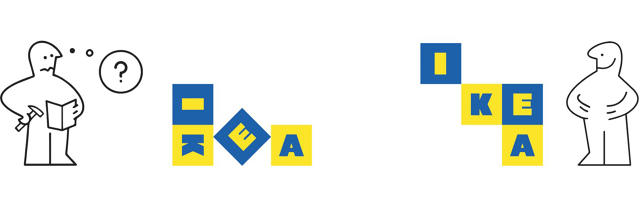Labour Leads to Love, The “Ikea Effect”
by taeyi kim
Do you know that cliché scene in a romantic comedy where the interested male invites over a female he is infatuated to watch him prepare a meal for two? Ever recognized that dinner doesn’t last very long, and before you know it, they’re exploring something more affectionate?
“Ikea Effect” is a psychological phenomenon that “describes the notion that there really is love in people’s own labour [because] when [people] put effort into building their own things, they attach greater value to it” (Norton, 2011). In those romantic scenes, the labour of love that pours into the meal for the character is what makes the dinner appealing, and often results in a return on the male’s investment.

The term “Ikea Effect” originated from the feeling people experience as they bond to Ikea furniture because of the effort and time they put into the product (Rega, 2016). The labour they invested evoked a sense of attachment and pride in oneself and the product they pieced together, which makes the product more precious than something that arrived completely finished.
I believe that the concept of “Ikea Effect” can be broadly integrated into many workplace environments to arouse intrinsic motivators by achieving their higher-order needs such as “social belonging, self-esteem, and self-actualization” (Langton, 2016). For instance, Dan Ariely, Professor of Psychology and Behavioral Economics at Duke University noted that “we could get people to feel that something is theirs in a unique way,” by getting them to sign something or put their name afterwards which will create a connection with work.
The “Ikea Effect” can also translate to manufacturers themselves. For example, technology businesses tend to exhibit bonds to their original innovations, making it difficult for them to adapt to new technologies that fall outside their realm of comfort. Instead of utilizing new materials and plans, they tend to make minor adjustments and changes that mitigate drastic change to their original product. For example, Blackberry refused to abandon their once loved keyboard despite the reveal and subsequent success of touchscreen smartphones. Blackberry went from a leading telecommunications company to the proud owner of 0.8% of the smartphone industry. Why? The labour of love was hard to abandon.
I believe that the “Ikea Effect” is an interesting phenomenon that could add valuable meaning to goods or products, but we need to be aware of finding a balance between the love of labour and the love of a good resulting product. If companies assume that buyers are more attracted to the internal rewards of exerting effort more than the result of it, it may jeopardize practical decision making in the business world.
References
Langton, N., Robbins, S. P., & Judge, T. A. (2016). Organizational Behaviour Concepts, Controversies, Applications. Toronto: Pearson. p174
Norton, M. I. (2011). The “IKEA Effect”: When Labor Leads to Love. Cambridge: Harvard Business School.
Rega, S. (2016, December 1). A psychologist explains how the ‘IKEA effect’ can motivate people to work harder. Retrieved from Business Insider: http://www.businessinsider.com/dan-ariely-motivation-ikea-effect-ideas-2016-11
Image:
Ikea Logo [Digital image]. (2016, February 25). Retrieved February 5, 2017, from https://www.iconeye.com/opinion/rethink/item/12394-ikea-logo